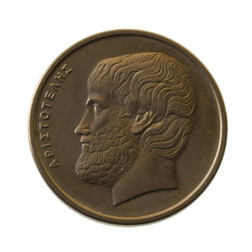Classes in
Detail: Classical Rhetoric
Classical Rhetorical Theory

Class Description:
During the peak of their cultural activities the classical Greek and Roman societies produced
practical oratory as well as theoretical rhetoric which still set a standard for today. In the course a
period of roughly 600 years will be covered, selecting some of the best examples of oratory and
rhetoric and discussing the samples and models in some detail. The class will take a systematic
approach, following the order of central theoretical questions and concepts rather than historical
incidents or authors. The class will be divided into three parts that focus on the main aims: a) to
Explore
Highlights of Classical Oratory, b) to
Understand
Crucial Concepts of Classical
rhetoric and c) to
Experience
Elements of Classical Training.
After finishing the course students should have a complete overview over the most important
topics and theorems of classical rhetoric as well as a detailed understanding of the central
questions of rhetorical theory.
This objective will be reached with a mixture of theoretical overviews and detailed scrutiny of
ancient texts. The class will be very reading intensive and the ability to independently research
selected topics will be needed for the group reports.
Topics covered in this course include the Sophists and Orators, Aristotle’s Rhetoric, The
Codification of Rhetoric, Cicero’s Rhetorical Theory, and Quintilian’s Institutes of Oratory. In
addition, we will read and discuss a number of classical speeches and some of the Dialogues of
Plato that enrich our understanding of rhetoric.
Materials:
I use two textbooks for this class: Murphy et al.: Synoptic History of Classical Rhetoric and George Kennedy's excellent translation of Aristotle: Rhetoric with short introductions. Beyond that we read a large selection of original texts including excerpts from Thucydides (Melian Dialogue), Isocrates (Helen), Demosthenes (Crown Speech), Anaximenes (Rhetorica ad Alexandrum), Auctor (Rhetorica ad Herennium), Cicero (De Inventione, Partitiones, and De Oratore), Quintilian (Institutio Oratoria), Seneca (Declamations), Tacitus (Dialogus), and Martianus Capella.
Sample Syllabus:
Download (pdf)
Student evaluations of this class:
(all scores out of 5.0 maximum)
4.6 (Fall 2011)
4.1 (Fall 2010)
4.0 (Spring 2010)
4.4 (Fall 2009)
4.1 (Spring 2009)
Selected student comments:
- Fall 2011: "Dr. Hoppmann is my favorite professor I've had at NU so far. He is enthusiastic, enjoyable, and extremely knowledgeable. I know that Dr. Hoppmann is only here for a brief time, but I would strongly advise Northeastern that he be kept if at all possible. He is a phenomenal professor and Communications students would benefit greatly from his teaching."
- Fall 2011: "Professor Hoppmann is one of the best professors in the Comm department. PLEASE take a class with him while you still can! He is an incredible speaker and teacher, treats all his students with respect and makes otherwise dull material fun and interesting. He creates a really positive atmosphere in the classroom and encourages people to argue and defend their opinions. He never grades homework, but you go over it as a class, so you can catch up in your spare time if you happen to be unprepared. He has a great approach to teaching and I think most of my classmates would agree. Exams were much harder than they should have been, but were graded on a curve, so that wasn't too bad either. Overall I recommend Prof. Hoppmann wholeheartedly."
- Fall 2010: "I absolutely loved this class. Even though the class was jam packed full of difficult reading assignments that I often had to read over twice or three times it was definitely worth it to be able to engage in the class discussions. Dr. Hoppmann was very effective, interesting, full of knowledge and helpful. I would definitely recommend him to anyone interested in the study of communications."
- Fall 2010: "Dr. Hoppmann was a great teacher. He cared so much about each subject, and got so excited, that it made me excited to learn. This isn't something you see in most teachers, and it was refreshing to know someone can be just as interested in this as I was coming into it, and now finishing the course."
- Spring 2010: "You know you have a great teacher when he or she is very passionate about what they teach and can apply what they are teaching well. Hoppmann is an excellent speaker, a funny and interesting professor, and knows all that there is to know about classic rhetoric. Definitely recommend taking his class."
- Spring 2010: "Thoroughly excellent class."
- Fall 2009: "He was an extremely good teacher. He made all course concepts very clear, and he was sure to go back over anything that students did not understand. He was very helpful and I would definitely recommend him to other students."
- Fall 2009: "Awesome teacher. Great sense of humor and charisma when leading a class. Allows for outside input as well. Accent was a bit difficult at first, but not a problem overall! Awesome guy!"
- Spring 2009: "Professor Hoppmann was always available to students during office hours or a scheduled appointment, and made sure to check in with the members of each group report. He was very open to questions during lecture and had obvious enthusiasm for the subject and the students."
- Spring 2009: "Passion for the subject matter, always willing to help students outside of class."